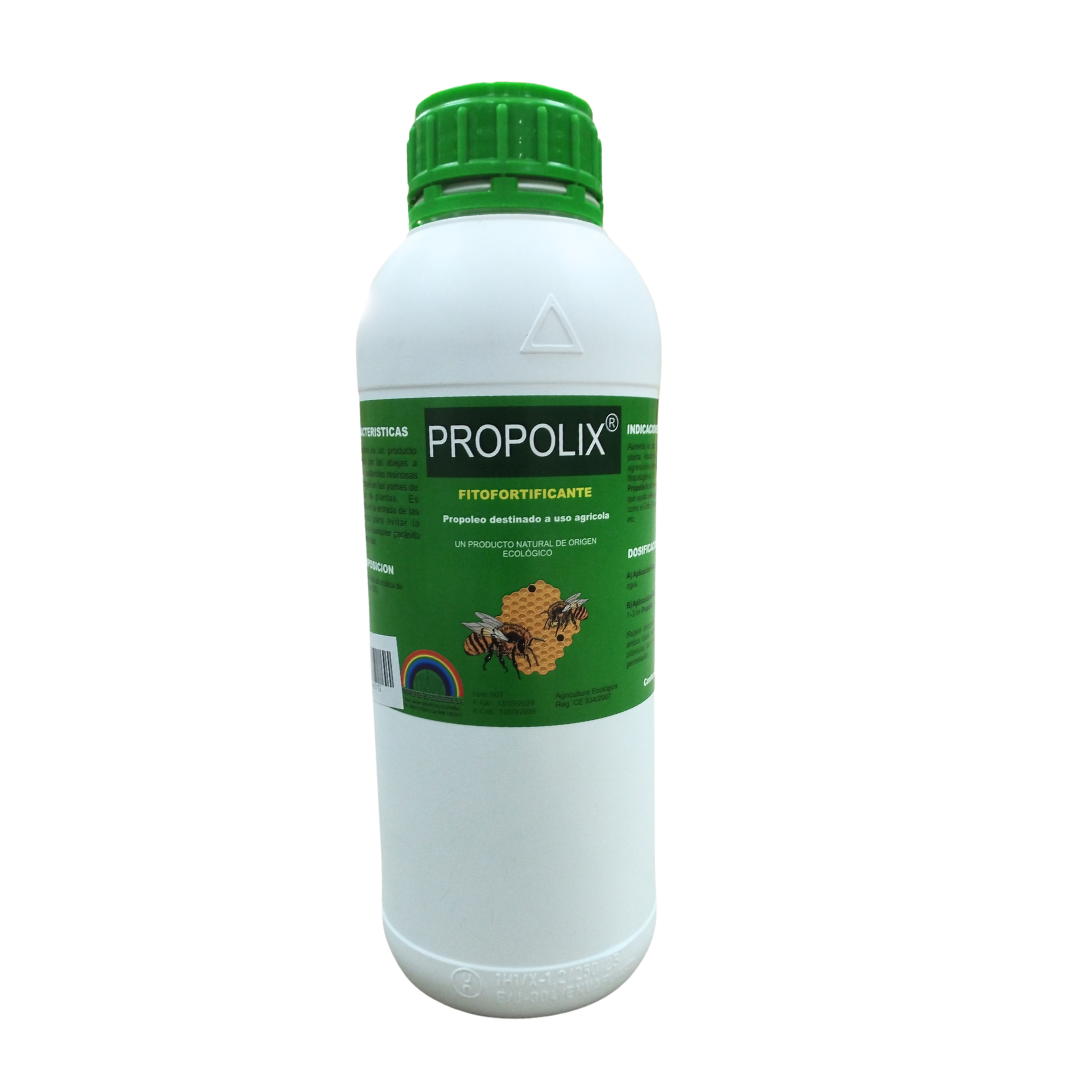Trabe
Trabe Propolix 1L
TRAB0102
Trabe Propolix: Natural Protection for your Crops. A powerful biostimulant and natural protectant that strengthens your plants' defenses against fungal and bacterial diseases.
Made from high-quality propolis, this product takes advantage of the bacteriostatic, bactericidal, and fungicidal properties of propolis, a material that bees use to protect their hives. Propolix not only improves the overall health of your crops, but also acts as a preventative and curative agent against common pests and pathogens, both in outdoor and indoor crops.
Propolis, the main component of Trabe Propolix, has been carefully processed to maintain its vitamin B, C, and E complexes, which are essential for stimulating biochemical processes in plants. This helps improve their performance and increase their natural resistance to external aggressions, such as fungal and bacterial attacks. It is ideal for combating common diseases such as powdery mildew, fusarium, botrytis, and alternaria, among others.
The use of Propolix not only prevents diseases but also acts as a regenerator of plant tissue. Its application is especially useful after making cuts in plants to obtain propagated material, accelerating healing and reducing the risk of infection. Its 100% natural composition ensures an environmentally friendly treatment, without toxic residues or harsh chemicals.
The dosage of Trabe Propolix is flexible, allowing for foliar or irrigation application. For foliar application, it is recommended to dilute between 2 and 3 ml per liter of water, while for irrigation, the dose is 1 to 2 ml per liter. In cases of powdery mildew or severe infestations, a curative dose of 10 ml per liter of water can be applied, repeating the treatment as needed.
Choose Trabe Propolix to ensure comprehensive and natural protection for your crops, improving their resistance, health, and yield without compromising the environment.





